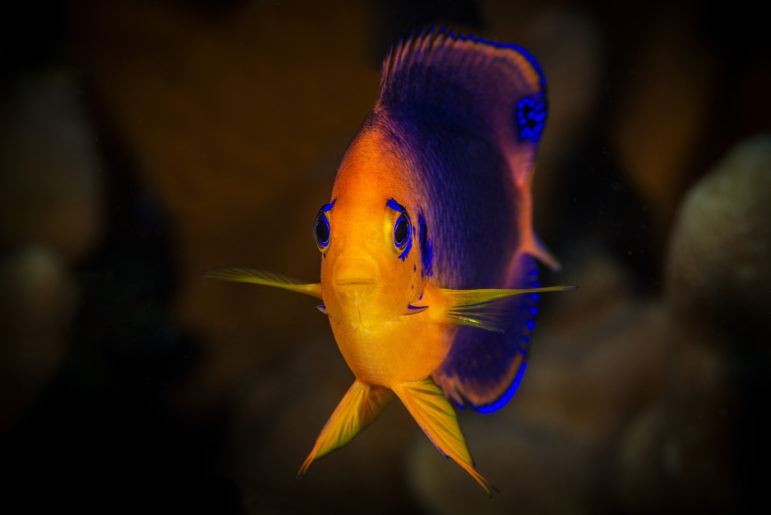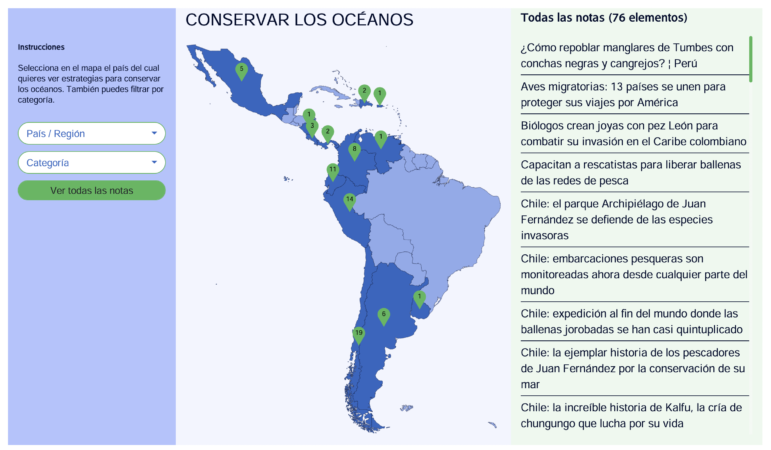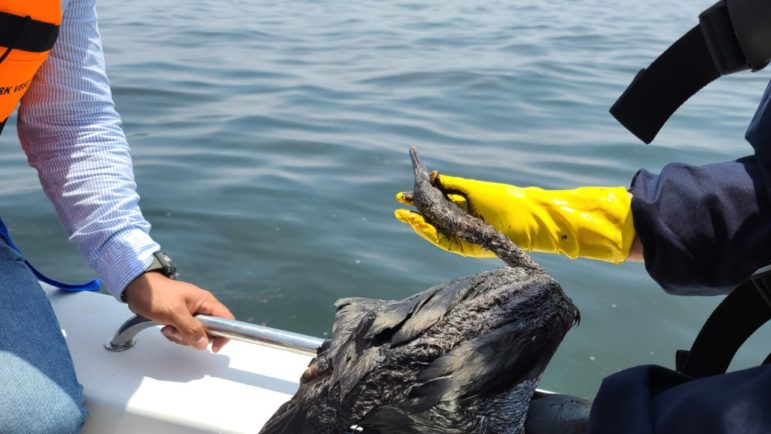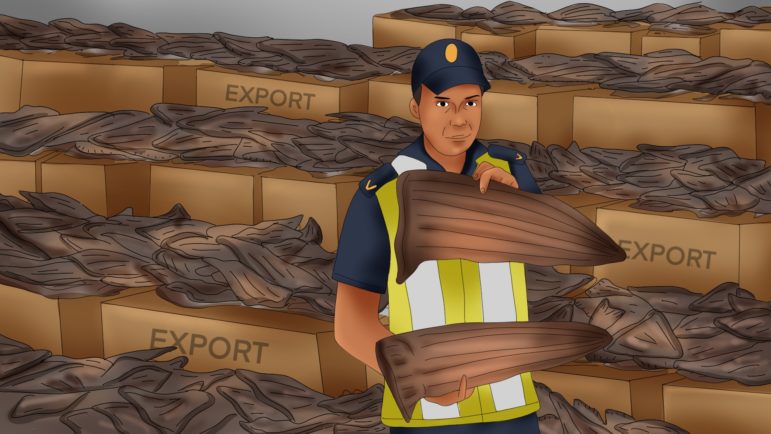
A colourful fish in Chile. Image courtesy of Eduardo Sorensen.
Did you know that Mongabay Latam produces original reporting in Spanish? As such, many of the articles mentioned in this post are in Spanish.
Over the last year, Mongabay’s Spanish-language news bureau, Mongabay Latam, has been reporting on numerous solution-driven stories about how science and community efforts have carried out conservation projects to protect endangered marine species or ecosystems.
This in-depth coverage consists of dozens of stories and videos, such as:
- How save oceans? 76 projects that are succeeding
- Spill of more than 11,000 barrels of oil in the sea contaminates fauna, beaches and protected areas in Peru
- The reasons behind the sinking of the oil platform and the incessant oil spills on Peru’s north coast
- Panama, a flag of convenience for illegal fishing and turmoil on the high seas
- Authorities in Ecuador identify company suspected of exporting shark fins for millions of dollars (video)
- Afro-Colombian community conserves Pacific biodiversity with new marine protected area (video)
- Cassiopeia’s journey: the hammerhead shark who left Galapagos to give birth to her pups (video)
- Authorities investigate companies suspected of trafficking algae in Chile (video)
An accessible interactive tool
As part of this coverage, Mongabay Latam profiled 76 conservation projects and grouped them in an interactive, public search tool to further increase awareness and access to leading approaches. Using this tool, users can filter the stories by country and the following categories: conservation initiatives, technology, scientific discoveries, protected areas and policies.
Independent journalism, real-world impact
Mongabay Latam’s independent reporting generated a number of real-world impacts, including responses and engagement with key stakeholders:
- President of the Biodiversity and Natural Resources Commission of the National Assembly of Ecuador, Washington Varela;
- Ecuador assembly member Byron Maldonado;
- Manuel Pulgar Vidal, former Peruvian Minister of Environment and Climate and Energy Leader for World Wildlife Fund;
- Ecuador Vice Minister of Aquaculture and Fisheries, Andrés Arens.
Beyond spurring discourse among decision-makers, Mongabay Latam’s reportage inspired greater awareness about a variety of environmental crises and more coverage on the issues by mainstream media outlets.
For instance, in early January 2022, the coast of Ventanilla in Peru was affected by the largest oil spill in the country. More than 10,000 barrels of oil from the company Repsol affected hundreds of kilometers of coastline and sensitive marine ecosystems. Mongabay Latam quickly covered this ecological crisis and followed up with an extensive series on the disaster. Several Peruvian and regional media outlets invited Mongabay Latam journalists to explain the damages to their audiences.
Peru’s former Minister of Environment and Climate and Energy Leader for World Wildlife Fund, Manuel Pulgar Vidal, was interviewed by some of the country’s most influential media to talk about the environmental impacts of the emergency where he mentioned Mongabay Latam’s investigation.
In his remarks, Vidal said: “In November 2019, the Mongabay Latam news agency, in fact, the most recognized, prestigious and objective agency on environmental issues, documented that in the last ten years there had been spills totaling 9,743 barrels out of a total of 9,439 events, 88% on the northern coast of Peru…”
Furthermore, Mongabay Latam’s reportage prompted other stories by other high-profile media outlets, like Nature magazine, which cited Mongabay Latam’s investigation. Mongabay Latam Staff Writer Yvette Sierra was invited to a special edition of the program El Hilo of Radio Ambulante, one of the most significant news podcasts in the region, and interviewed on the program Cuestión de Poder on the TNT24 television channel, the international channel of Colombia’s RCN, to discuss the impacts of the oil spill.
Series on shark trafficking in Ecuador leads to greater transparency
After the publication of Mongabay Latam’s special series on shark trafficking in Ecuador, the president of the Biodiversity and Natural Resources Commission of the National Assembly of Ecuador, Washington Varela, sent a letter to the public prosecutor’s office. The letter urged the officials “to proceed as quickly as possible with this situation” and requested information about sanctioning processes against the company.
Also, in response to this reportage, Assemblyman Byron Maldonado sent a letter to the Minister of Production asking for information that Mongabay Latam’s editor, Michelle Carrere, submitted but was not answered by the authorities. The information requested was the CITES permits granted during 2020 and 2021. After the official request of the assembly member, the documents were finally delivered by the ministry.
Did you enjoy reading about the ripples of nonprofit, environmental news? If so, please check out our other Mongabay Impacts here.
Support independent environmental journalism
If you are interested in helping shed light on conservation stories such as this one, there are two excellent ways you can do so with Mongabay. First, consider making a donation, which directly helps us continue to produce high-impact journalism from nature’s frontline. Second, subscribe to Mongabay’s newsletter to get the latest environmental news delivered right to your inbox.
About Mongabay
Mongabay is a nonprofit environmental science and conservation news platform focused on providing cutting-edge independent journalism from nature’s frontline. We pride ourselves on producing reporting that has substantial, tangible impacts around the world.


